Warning: Trying to access array offset on value of type bool in /www/wwwroot/www.medtourcn.com/wp-content/themes/medical-directory/framework/theme/medicaldirectory-image.php on line 78
Warning: Trying to access array offset on value of type bool in /www/wwwroot/www.medtourcn.com/wp-content/themes/medical-directory/framework/theme/medicaldirectory-image.php on line 79

**Patient Story | Chinese CAR-T Therapy: An Inspiring Journey of Changing Fate for Patients with Relapsed or Refractory Diffuse Large B-Cell Lymphoma (R/R DLBCL)**
**Patient Story | Chinese CAR-T Therapy: An Inspiring Journey of Changing Fate for Patients with Relapsed or Refractory Diffuse Large B-Cell Lymphoma (R/R DLBCL)**

DLBCL
#CAR-T #DLBCL #Lymphoma #CARTtherapy #RRDLBCL #Patientstory #CD19
In the field of cancer treatment, China has made remarkable strides in CAR-T cell therapy, especially in the fight against relapsed or refractory diffuse large B-cell lymphoma (R/R DLBCL). Today, we will share the story of a patient whose fate was transformed by this revolutionary treatment at a leading hospital in China.
**The Patient’s Struggle and the Introduction of CAR-T Therapy**
Mr. Wang, a 45-year-old patient from China, was diagnosed with R/R DLBCL. After undergoing the standard first-line R-CHOP chemotherapy, his cancer unfortunately relapsed. He then tried an alternative chemotherapy regimen, but the disease continued to progress. The relentless development of the lymphoma took a severe toll on his physical and mental health, and he and his family were urgently seeking a more effective solution.
At the point of near despair, Mr. Wang reached out to the Advanced Medicine In China team and received a potential solution at a renowned cancer center within the team. The experts introduced him to the possibility of CAR-T cell therapy. This cutting-edge treatment, gaining increasing attention within China’s medical field, offered a glimmer of hope.
**The Treatment Process and the Expertise of the Medical Team**
Before beginning CAR-T therapy, Mr. Wang underwent a comprehensive series of evaluations and preparations. An experienced medical team of oncologists, hematologists, and immunologists meticulously planned every step of the treatment. They explained the procedure in detail to Mr. Wang and his family, addressed their concerns, and ensured they fully understood the process.
The treatment began with the collection of Mr. Wang’s own T cells. These cells were then carefully modified in an advanced laboratory to express a chimeric antigen receptor (CAR) capable of specifically recognizing the CD19 antigen on lymphoma cell surfaces. Once the CAR-T cells were ready, they were infused back into Mr. Wang. Throughout the treatment, the medical team closely monitored his condition around the clock, prepared to manage any potential side effects, as these are a known risk of CAR-T therapy.
**Overcoming Challenges and Achieving Success**
In the days following the CAR-T cell infusion, Mr. Wang experienced some expected side effects, including fever and mild fatigue. The medical team, well-versed in managing CAR-T-related toxicities, promptly implemented appropriate medication and supportive care measures. They adjusted the treatment plan as needed to ensure Mr. Wang’s comfort and safety while maximizing the efficacy of the CAR-T cells.
Miraculously, within just one month of the infusion, Mr. Wang’s symptoms began to significantly improve. His tumor markers started to decrease, and follow-up scans showed a noticeable reduction in the size of lymphoma lesions. By the third month, he achieved partial remission (PR), and to everyone’s delight, by the sixth month, he reached complete remission (CR). This was not only a victory for Mr. Wang but also a testament to the power of Chinese CAR-T therapy and the expertise of the medical team. The hospital’s advanced facilities, combined with the doctors’ in-depth knowledge and experience, enabled them to navigate the complexities of CAR-T treatment and guide Mr. Wang toward recovery.
**Ripple Effects and Future Hope**
Mr. Wang’s story is just one of many success cases within China’s CAR-T treatment program. His experience brings hope not only to patients within China but also to countless others around the world with R/R DLBCL. It showcases the potential of China’s CAR-T cell therapy to offer new life for those who have exhausted traditional treatment options.
As China continues to invest in research and development in the field of CAR-T therapy, and as more hospitals and medical teams gain proficiency in its application, the future looks increasingly hopeful. Through ongoing efforts to optimize treatment protocols, manage side effects more effectively, and expand the accessibility of this life-saving therapy, Chinese CAR-T therapy will have a growing impact on the global fight against cancer.
🎉🎉To assess whether the condition is suitable for CAR-T therapy, you can submit pathology reports, treatment history, and discharge summaries to the Medical Department of <Advanced Medicine in China> for preliminary evaluation!
WhatsApp: Https://wa.me/+8613717959070
Email: doctor.huang@globecancer.com
#CancerTreatment #RRLymphoma #ChineseMedicalAdvances #Immunotherapy #PatientSuccess #Oncology #HopeForCancer #MedicalBreakthrough #CancerResearch #China
Warning: Trying to access array offset on value of type bool in /www/wwwroot/www.medtourcn.com/wp-content/themes/medical-directory/framework/theme/medicaldirectory-image.php on line 78
Warning: Trying to access array offset on value of type bool in /www/wwwroot/www.medtourcn.com/wp-content/themes/medical-directory/framework/theme/medicaldirectory-image.php on line 79
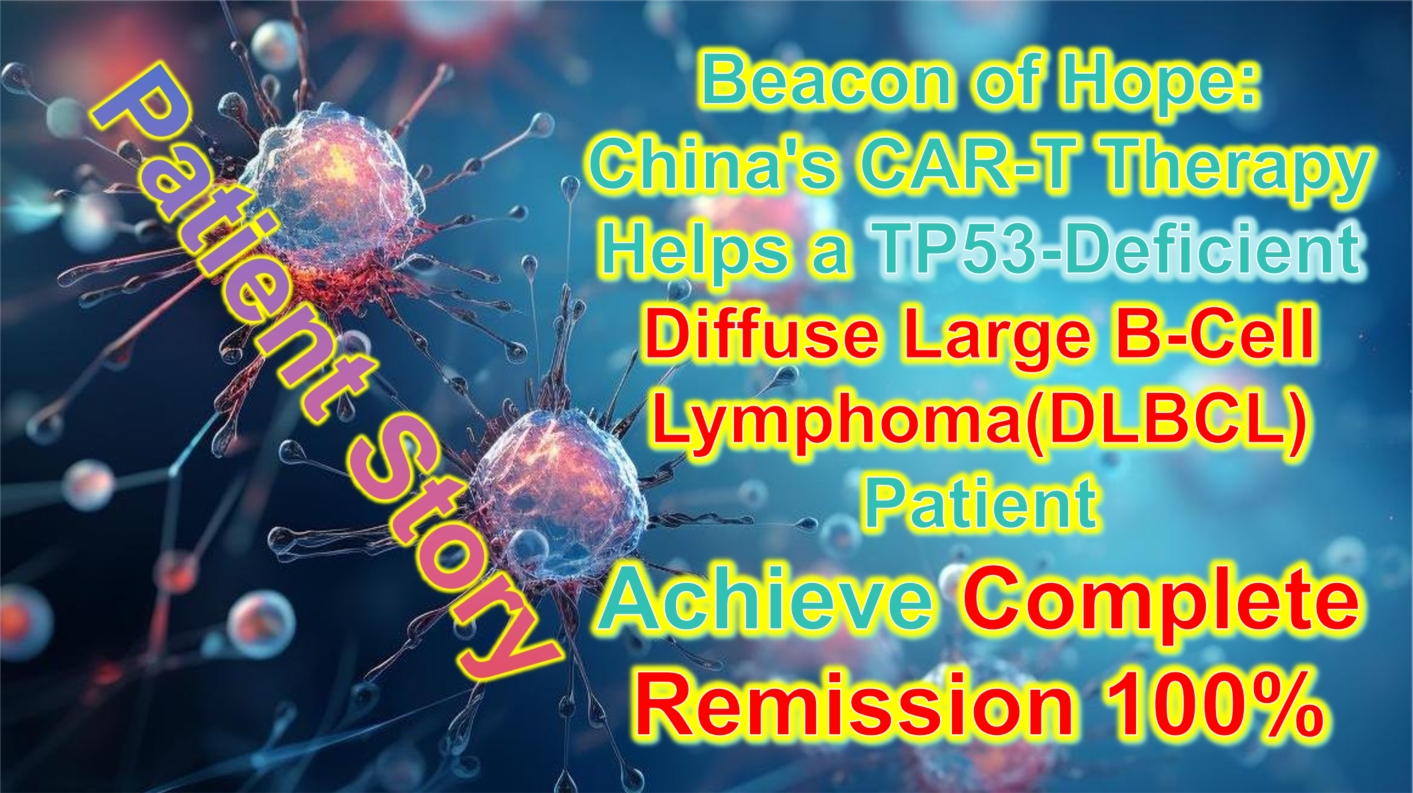
Beacon of Hope: China’s CAR-T Therapy Helps a TP53-Deficient Diffuse Large B-Cell Lymphoma(DLBCL) Patient Achieve Complete Remission
### Beacon of Hope: China’s CAR-T Therapy Helps a TP53-Deficient Diffuse Large B-Cell Lymphoma Patient Achieve Complete Remission

DLBCL
#CAR-T #CancerTreatment #Lymphoma #DLBCL #PrecisionMedicine
In an inspiring treatment case, a 38-year-old Chinese male patient with TP53-deficient Diffuse Large B-cell Lymphoma (DLBCL) achieved complete remission through Chinese CAR-T cell therapy. This remarkable outcome has sparked excitement about the potential and efficacy of China’s CAR-T therapy for treating relapsed and refractory lymphomas.
Patient Treatment Journey
This Chinese patient was diagnosed with non-germinal center subtype DLBCL with TP53 gene deletion in March 2023, and his condition was assessed as high-risk. This genetic factor often complicates prognosis. The patient initially underwent treatments including R-CHOP and R-DA-EPOCH regimens, achieving partial remission (PR). Despite completing autologous stem cell transplantation (ASCT), his disease unfortunately progressed two months later, indicating that ASCT alone was insufficient for sustained remission, and the disease was on the brink of relapse.
Personalized Application of Chinese CAR-T Therapy
In desperation, the patient turned to our Advanced Medicine in China team for assistance. Under the guidance of lymphoma experts experienced in this treatment, the medical team decided to apply Chinese CAR-T cell therapy as a solution. Following a comprehensive assessment, including a detailed analysis of the patient’s medical history and genetic profile, a personalized treatment plan was devised. To further control the disease, the patient received localized retroperitoneal radiotherapy in January 2024, followed by the infusion of Chinese CAR-T cells in February after pretreatment with the FC regimen. Remarkably, just one month after the CAR-T cell infusion, the patient tolerated the therapy well and achieved complete remission (CR). This outcome not only halted disease progression but enabled the patient to return to work and resume a normal life.
Expert Interview with the Advanced Medicine in China Team
The team’s expert highlighted that this case involved relapsed refractory DLBCL, with TP53 deletion adding a higher risk of recurrence. ASCT alone was insufficient for sustained remission, making CAR-T a more effective option. Despite the greater treatment challenges, Chinese CAR-T therapy proved ideal for this high-risk relapsed case. The doctor advised that, when feasible in primary healthcare settings, Chinese CAR-T should be considered as an early intervention option. Research data supports the effectiveness of Chinese CAR-T in second-line therapy compared to standard ASCT.
Overall Advantages of Chinese CAR-T Therapy
This successful case is not isolated; it demonstrates China’s growing expertise and capabilities in CAR-T cell therapy. China has been at the forefront of research and clinical application in this field, committed to improving outcomes for lymphoma patients. The Chinese medical community takes a comprehensive approach to CAR-T therapy, prioritizing personalized medicine and tailoring treatment plans based on each patient’s unique genetic and clinical characteristics. For instance, advanced genetic testing enables doctors to identify specific mutations, such as P53 deletion, and adjust treatment strategies accordingly. When conventional chemotherapy and targeted drugs have limited efficacy, CAR-T cell therapy is increasingly being used as a viable alternative. Furthermore, Chinese hospitals continuously optimize treatment protocols. The pretreatment regimen prior to CAR-T cell infusion is meticulously designed to create an optimal therapeutic environment in the patient’s body. This not only removes barriers for the proliferation and effective functioning of CAR-T cells but also minimizes potential side effects. In this case, the patient’s positive response to the therapy was partly due to the carefully crafted pretreatment regimen.
Global Significance of China’s Experience
As the world seeks innovative cancer treatment solutions, China’s success with CAR-T cell therapy for lymphoma patients provides valuable insights. The combination of advanced medical technology, personalized treatment strategies, and comprehensive patient support offers beneficial lessons for the global fight against lymphoma and other cancers. With ongoing research and accumulating clinical experience, the future of Chinese CAR-T cell therapy holds great promise, bringing hope not only to patients in China but to patients worldwide.
To assess whether the condition is suitable for CAR-T therapy, you can submit pathology reports, treatment history, and discharge summaries to the Medical Department of Advanced Medicine in China for preliminary evaluation!
WhatsApp: Https://wa.me/+8613717959070
Email: doctor.huang@globecancer.com
#ChinaMedicalInnovation #Immunotherapy #GeneTherapy #Oncology #TP53 #CompleteRemission #AdvancedMedicine #GlobalHealth
Warning: Trying to access array offset on value of type bool in /www/wwwroot/www.medtourcn.com/wp-content/themes/medical-directory/framework/theme/medicaldirectory-image.php on line 78
Warning: Trying to access array offset on value of type bool in /www/wwwroot/www.medtourcn.com/wp-content/themes/medical-directory/framework/theme/medicaldirectory-image.php on line 79

Complete Remission In Just Two Months! China’s CAR-T Therapy Brings New Hope For Lymphoma (DLBCL) Patients!
Complete Remission In Just Two Months! China’s CAR-T Therapy Brings New Hope For Lymphoma (DLBCL) Patients!

DLBCL
#Lymphoma #CAR_TCellTherapy #DLBCL#CancerHope #PatientStory
Lymphoma has long been regarded as a “synonym for death,” with its high incidence and recurrence rates striking fear into many. However, with the rapid advancement of medical technology, a revolutionary new therapy is changing this perception—CAR-T cell therapy. In recent years, China has made significant progress in this field, offering lymphoma patients a new ray of hope.
Recently, exciting news from China has garnered widespread attention. At a top cancer treatment center in the country, a patient with advanced diffuse large B-cell lymphoma (DLBCL) experienced a complete elimination of tumor cells just two months after receiving China’s CAR-T cell therapy. This demonstrates the extraordinary potential of CAR-T therapy in treating hematologic malignancies.
### A Breakthrough in Reversing Cancer: From Despair to Hope
Ms. Li from Zhuhai, China, was diagnosed in 2022 with diffuse large B-cell lymphoma (high-grade “double-hit” subtype), a rapidly progressing and challenging type of lymphoma with a high recurrence rate. It is considered one of the most aggressive forms of malignant lymphoma. Over the two years following her diagnosis, Ms. Li underwent various treatments, including chemotherapy and targeted therapy, but her condition remained uncontrolled. In early 2024, her disease worsened rapidly, making her battle against cancer even more difficult.
At this critical moment, Ms. Li sought help from the Advanced Medicine in China team. The experts quickly held a consultation and developed a personalized comprehensive treatment plan centered around CAR-T cell therapy.
### CAR-T Therapy in China: A Game Changer in Cancer Treatment
CAR-T therapy is a form of gene-engineered immunotherapy that involves modifying a patient’s own T cells to enable them to accurately target and eliminate cancer cells. This therapy not only offers strong targeting and potent effects but also significantly reduces the likelihood of recurrence. Particularly in China, where CAR-T technology has matured, more and more patients are benefiting from this innovative treatment.
One month after receiving CAR-T therapy, Ms. Li’s follow-up examination showed that all tumor cells in her body had been completely eradicated, achieving metabolic complete remission (mCR). Five months after her discharge, a further enhanced whole-body CT scan confirmed that she remained in complete remission (CR).
### The International Impact of CAR-T Therapy in China
Ms. Li’s rapid recovery from advanced diffuse large B-cell lymphoma (DLBCL) within just two months is not only a personal victory but also highlights China’s leading position in the field of CAR-T cell therapy. Through a combination of independent research and clinical applications, China is quickly emerging as a global leader in innovative cancer treatments.
As more success stories like Ms. Li’s emerge, China’s CAR-T cell therapy is gradually gaining international recognition, bringing hope to more patients with advanced cancer. China’s CAR-T technology, with its exceptional treatment outcomes, is shaping the future of cancer treatment.
🎉🎉To assess whether the condition is suitable for CAR-T therapy, you can submit pathology reports, treatment history, and discharge summaries to the Medical Department of <Advanced Medicine in China> for preliminary evaluation!
WhatsApp: Https://wa.me/+8613717959070
Email: doctor.huang@globecancer.com
#CancerTreatment #ChinaMedicalAdvances #Immunotherapy #CancerBreakthrough #Hematology #CancerResearch #AdvancedMedicine #CompleteRemission #CAR_TInnovation #HopeForCancerPatients #MedicalRevolution
Warning: Trying to access array offset on value of type bool in /www/wwwroot/www.medtourcn.com/wp-content/themes/medical-directory/framework/theme/medicaldirectory-image.php on line 78
Warning: Trying to access array offset on value of type bool in /www/wwwroot/www.medtourcn.com/wp-content/themes/medical-directory/framework/theme/medicaldirectory-image.php on line 79
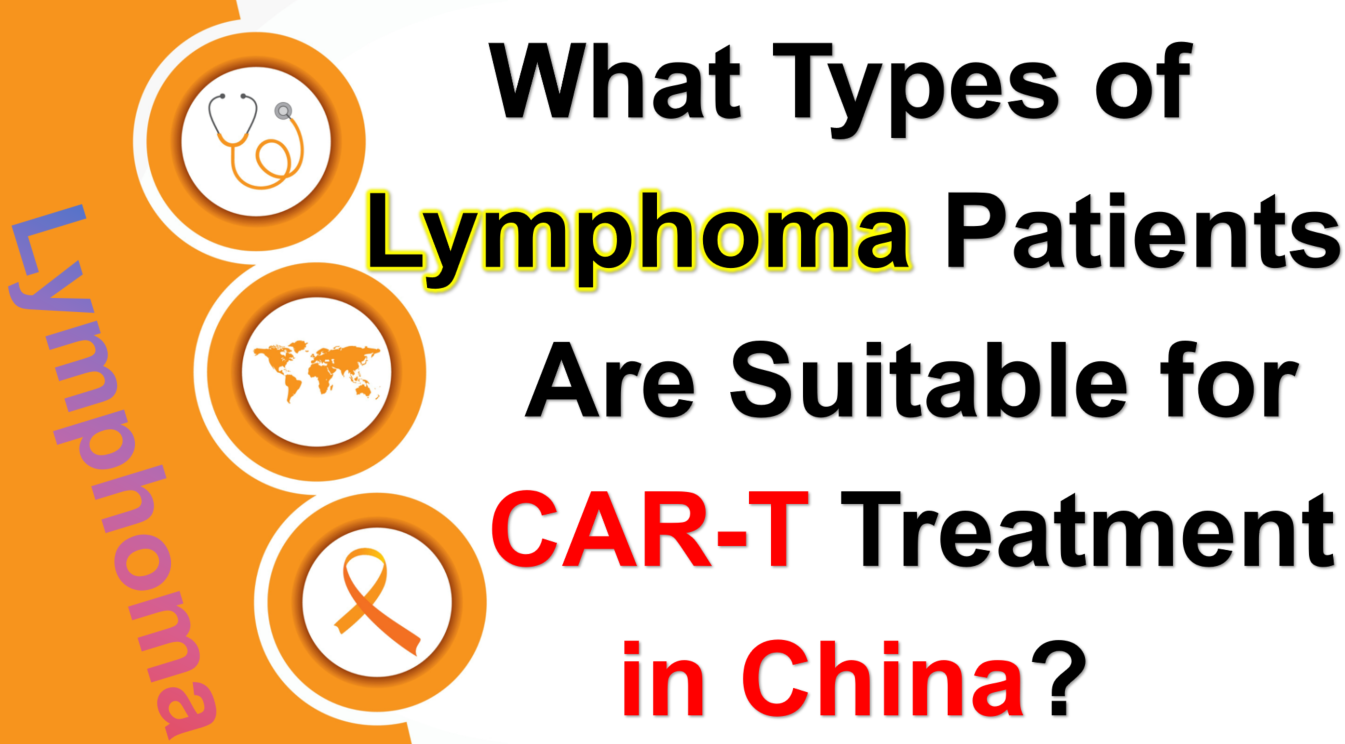
What Types of Lymphoma Patients Are Suitable for CAR-T Treatment in China?
# What Types of Lymphoma Patients Are Suitable for CAR-T Treatment in China?

Lymphoma
#CART #Lymphoma #DLBCL #LBCL #MedicalTourism #FL #MCL
In recent years, CAR-T cell therapy has sparked a revolution in cancer treatment worldwide, achieving remarkable results, especially in lymphoma care. As one of the global leaders in CAR-T therapy, China has attracted a large number of international patients seeking this cutting-edge immunotherapy. So, what types of lymphoma patients are suitable to travel to China for this advanced treatment?
## Indications: The First Choice for Relapsed or Refractory Lymphoma Patients
CAR-T treatment in China primarily targets patients with relapsed or refractory diffuse large B-cell lymphoma (DLBCL), follicular lymphoma (FL), and mantle cell lymphoma (MCL). Specific patient groups that are suitable include:
1. **Relapsed DLBCL**: Patients who did not respond to first-line treatments, such as R-CHOP, or relapsed within 12 months after treatment.
2. **Follicular Lymphoma (FL)**: Patients with grade 1-3a FL who have relapsed or are refractory after at least two lines of treatment.
3. **Mantle Cell Lymphoma (MCL)**: Patients whose disease remains difficult to control even after multiple treatments, including BTK inhibitors.
4. Patients whose lymphoma is resistant to traditional treatments or who experience rapid relapse after therapies such as conventional chemotherapy and targeted treatments.
5. More indications include diffuse large B-cell lymphoma (not otherwise specified), DLBCL transformed from follicular lymphoma, primary mediastinal large B-cell lymphoma, and high-grade B-cell lymphoma with MYC and BCL2 and/or BCL6 rearrangement, as well as grade 3b follicular lymphoma.
CAR-T therapy offers new hope to these patients by targeting the CD19 antigen on the surface of tumor cells.
## Physical Condition: Stable Health is Key
While CAR-T therapy has shown significant efficacy, the potential for serious side effects, such as **cytokine release syndrome (CRS)** and **neurotoxicity**, means that patients must be in stable health to tolerate the risks associated with treatment. Suitable patients should meet the following conditions:
– **Good heart and lung function**: The patient’s cardiovascular and respiratory health should be adequate to handle the stress of treatment.
– **Normal liver and kidney function**: Liver enzymes (such as ALT) and creatinine levels should be within normal ranges to ensure that the patient can properly eliminate toxins from the body.
– **Stable immune system**: Patients should not have severe infections or immunosuppressed conditions, as CAR-T therapy can further weaken the immune system, increasing the risk of infection.
Additionally, patients need to achieve a performance status score of 0-1 on the ECOG scale, indicating that they have good functional ability and can handle daily activities independently.
## Pre-Treatment Testing: Ensuring Proper Antigen Expression
CAR-T therapy targets specific antigens (such as CD19) on the surface of tumor cells, so patients’ cancer cells must express these antigens for treatment to be effective. If tests show that the tumor cells do not express the relevant antigens, CAR-T therapy will not work effectively.
## Costs and Resources: The Advantages of CAR-T in China
Compared to Western countries, CAR-T therapy in China is relatively affordable, usually costing between hundreds of thousands to one million RMB, whereas in the U.S., CAR-T treatment can cost several hundred thousand dollars. For patients with the financial ability but who find it difficult to bear the high costs of treatment in the West, China offers a significant cost advantage.
Moreover, China boasts several top-tier hospitals with established CAR-T treatment programs, such as leading cancer centers in Beijing, Shanghai, and Guangzhou. These hospitals have extensive clinical experience, offering international patients convenient access to treatment.
## Contact Us:
The Advanced Medicine in China team has a wealth of connections with doctors and hospitals, enabling us to quickly help you find the most suitable hospital and expert team for your specific needs. In China, we provide a fast-track option for CAR-T treatment.
## Conclusion
With its cost advantages, advanced medical resources, and broad indications, CAR-T therapy in China has attracted a large number of international lymphoma patients. For those who have failed traditional treatments, are in good physical condition, and have sufficient financial means, CAR-T treatment in China is an ideal choice. If you or someone close to you meets these conditions, consider coming to China for world-leading CAR-T therapy, and open the door to new hope in the fight against cancer.

 To assess whether the condition is suitable for CAR-T therapy, you can submit pathology reports, treatment history, and discharge summaries to the Medical Department of <Advanced Medicine in China> for preliminary evaluation!
To assess whether the condition is suitable for CAR-T therapy, you can submit pathology reports, treatment history, and discharge summaries to the Medical Department of <Advanced Medicine in China> for preliminary evaluation!
WhatsApp: Https://wa.me/+8613717959070
Email: doctor.huang@globecancer.com
#CancerTherapy #CARTinChina #RelapsedLymphoma #RefractoryLymphoma #FollicularLymphoma #MantleCellLymphoma #Immunotherapy #CancerRevolution #AdvancedCancerCare #CD19Targeting #CancerHope #CancerCare #ChineseHospitals #GlobalHealth #CancerSurvivors #CARTSuccess #MedicalInnovation
Warning: Trying to access array offset on value of type bool in /www/wwwroot/www.medtourcn.com/wp-content/themes/medical-directory/framework/theme/medicaldirectory-image.php on line 78
Warning: Trying to access array offset on value of type bool in /www/wwwroot/www.medtourcn.com/wp-content/themes/medical-directory/framework/theme/medicaldirectory-image.php on line 79
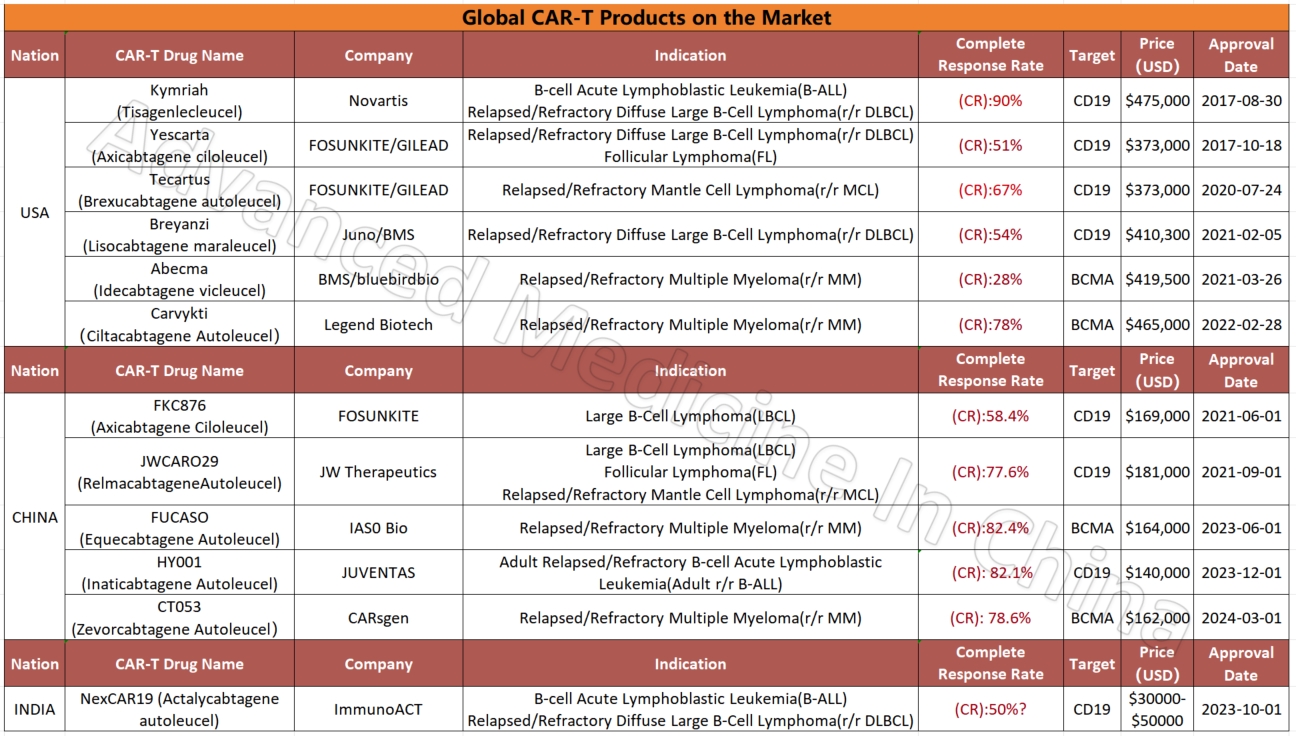
Global CAR-T Products on the Market and BCMA-Targeted CAR-T Products
Global CAR-T Products on the Market

CAR-T
Globally Approved BCMA-Targeted CAR-T Products
– Multiple Myeloma
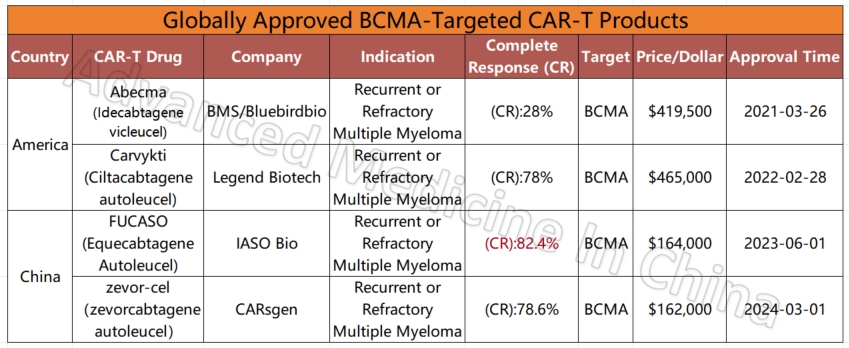
Multiple Myeloma

 To assess whether the condition is suitable for CAR-T therapy, you can submit pathology reports, treatment history, and discharge summaries to the Medical Department of Advanced Medicine in China for preliminary evaluation!
To assess whether the condition is suitable for CAR-T therapy, you can submit pathology reports, treatment history, and discharge summaries to the Medical Department of Advanced Medicine in China for preliminary evaluation!
WhatsApp: Https://wa.me/+8613717959070
Email: doctor.huang@globecancer.com
Warning: Trying to access array offset on value of type bool in /www/wwwroot/www.medtourcn.com/wp-content/themes/medical-directory/framework/theme/medicaldirectory-image.php on line 78
Warning: Trying to access array offset on value of type bool in /www/wwwroot/www.medtourcn.com/wp-content/themes/medical-directory/framework/theme/medicaldirectory-image.php on line 79
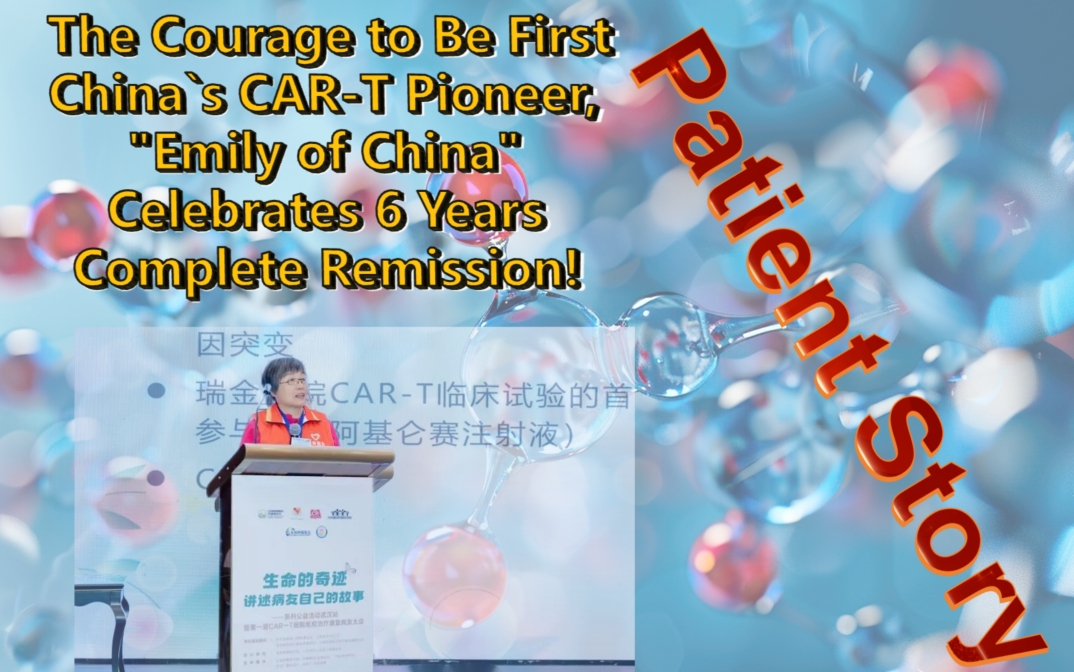
The Courage to Be First: China’s CAR-T Pioneer, “Emily of China,” Celebrates 6 Years in Complete Remission!
### The Courage to Be First: China’s CAR-T Pioneer, “Emily of China,” Celebrates 6 Years in Complete Remission!

Patient Story
